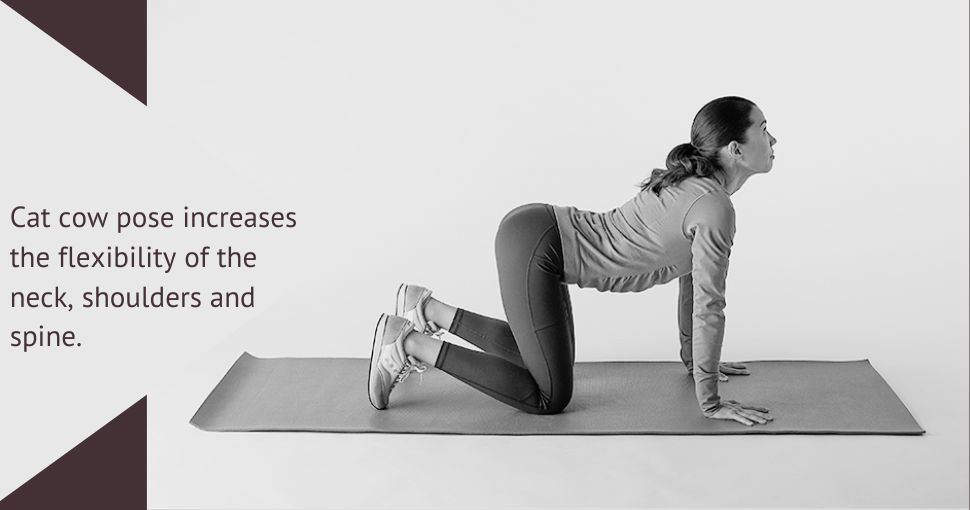How Do I Get My Sciatic Nerve To Stop Hurting?
Learn effective ways to relieve sciatic nerve pain, including stretches, lifestyle changes, and treatments to stop discomfort.

Sciatic nerve pain, often referred to as sciatica, is a common issue that can disrupt daily life. It’s characterized by pain radiating along the path of the sciatic nerve, which extends from the lower back through the hips and down each leg. If you're struggling with sciatica, there’s good news—many remedies can provide relief and help prevent future flare-ups. Here’s a comprehensive guide to managing sciatic nerve pain.
Understanding Sciatica
Sciatica occurs when the sciatic nerve is compressed or irritated, typically by a herniated disc, bone spur, or spinal stenosis. Symptoms include:
- Sharp or burning pain in the lower back, buttocks, or legs
- Numbness or tingling in the affected leg
- Weakness in the leg or foot
- Pain that worsens with prolonged sitting or sudden movements
Immediate Relief for Sciatic Nerve Pain
- Apply Cold or Heat Therapy
- Cold packs: Use in the first 48 hours to reduce inflammation.
- Heat therapy: Apply after 48 hours to relax muscles and improve blood flow.
- Stretching and Light Exercise
Gentle stretches targeting the lower back and hamstrings can ease nerve pressure. Try:- Child’s Pose
- Piriformis Stretch
- Knee-to-Chest Stretch
- Over-the-Counter Pain Relievers
Nonsteroidal anti-inflammatory drugs (NSAIDs) like ibuprofen can reduce pain and swelling temporarily.
Lifestyle Changes to Prevent Sciatica
- Improve Posture
Sit with your back straight, feet flat on the floor, and avoid slouching to reduce strain on your lower back. - Exercise Regularly
Focus on strengthening your core, lower back, and leg muscles to support your spine and prevent future issues. - Maintain a Healthy Weight
Excess weight can increase pressure on your spine and worsen sciatic pain. - Lift Properly
Always bend at your knees, not your waist, to avoid straining your back.
When to Seek Professional Help
If your sciatic nerve pain persists for more than a few weeks, or if it’s accompanied by severe symptoms like loss of bladder control or muscle weakness, consult a healthcare provider. They may recommend:
- Physical Therapy: Tailored exercises to address your specific condition.
- Medications: Muscle relaxants or prescription pain relievers.
- Injections: Corticosteroid injections to reduce inflammation around the nerve.
- Surgery: In rare cases, surgery may be necessary to relieve nerve compression.
Home Remedies for Ongoing Relief
- Use a Supportive Cushion
A coccyx or orthopedic seat cushion can reduce pressure on your lower back while sitting. - Stay Active
Prolonged inactivity can worsen sciatica. Opt for low-impact activities like walking, swimming, or yoga. - Epsom Salt Baths
Soaking in warm water with Epsom salts can relax tense muscles and alleviate discomfort.
Take the first steps toward a pain-free life today—your sciatic nerve will thank you!

Key Takeaways!
Managing sciatic nerve pain doesn’t have to be overwhelming. With a combination of at-home remedies, lifestyle adjustments, and, if necessary, medical intervention, you can find relief and keep sciatica at bay. If your symptoms persist or worsen, don’t hesitate to seek advice from a healthcare professional.
Frequently Asked Questions
Q: Can hot and cold therapy help stop sciatic nerve pain?
A: Yes, hot and cold therapy can be effective in relieving sciatic nerve pain, especially when used strategically. Both methods help in different ways:
- Cold Therapy: Applying a cold pack to the affected area in the first 24-48 hours can reduce inflammation and numb the pain. Cold therapy works by constricting blood vessels, which helps minimize swelling and slows the nerve’s ability to send pain signals. Use an ice pack wrapped in a cloth for 15-20 minutes at a time, several times a day.
- Heat Therapy: After the initial 48 hours, heat therapy can help relax tight muscles around the sciatic nerve and improve blood flow to the area. This promotes healing and alleviates discomfort. Apply a heating pad or take a warm bath for 15-20 minutes to soothe the pain.
For best results, alternate between hot and cold therapy depending on the stage of your pain. However, if your sciatica persists or worsens, consult a healthcare professional for further evaluation and treatment.
Q: Are there specific stretching exercises to alleviate sciatic nerve pain?
A: Yes, targeted stretches like the cat-cow stretch, pigeon pose, or knee-to-chest stretches can relieve pressure on the sciatic nerve, improving flexibility and reducing tension.
Q: Can over-the-counter medications help with sciatic pain?
A: Yes, over-the-counter (OTC) medications can help alleviate sciatic pain in many cases. Nonsteroidal anti-inflammatory drugs (NSAIDs), such as ibuprofen (Advil, Motrin) or naproxen (Aleve), are commonly used to reduce inflammation and relieve mild to moderate pain associated with sciatica. These medications can be particularly effective when the pain is due to inflammation around the sciatic nerve.
Acetaminophen (Tylenol) is another option that can help manage pain, though it doesn't target inflammation like NSAIDs do.
However, keep in mind:
- OTC medications provide temporary relief and may not address the root cause of your sciatic pain.
- Always follow the dosage instructions on the label to avoid potential side effects or complications, such as stomach irritation with NSAIDs.
- If your pain persists for more than a few weeks or worsens, consult a healthcare professional for a more comprehensive treatment plan.
Combining OTC medications with stretches, gentle exercises, and good posture can improve recovery and prevent further episodes of sciatica.
Q: What role does physical therapy play in relieving sciatic nerve pain?
A: Physical therapy plays a vital role in relieving sciatic nerve pain by addressing the root causes of the condition and promoting long-term recovery.
Here’s how it helps:
- Pain Relief and Reduced Inflammation:
Physical therapists use targeted exercises, stretches, and techniques to relieve pressure on the sciatic nerve, reducing pain and inflammation. - Improved Mobility:
Therapy focuses on restoring flexibility and mobility in the lower back, hips, and legs, which helps alleviate stiffness caused by sciatica. - Strengthening Supporting Muscles:
Strengthening core and lower back muscles provides better support for the spine, reducing strain on the sciatic nerve. - Posture and Alignment Correction:
Poor posture or spinal misalignments often contribute to sciatica. Physical therapy helps correct these issues, preventing recurrence. - Personalized Treatment Plan:
Therapists create a customized plan based on your specific condition, ensuring effective and safe recovery. - Education and Prevention:
Physical therapy includes guidance on proper body mechanics, posture, and exercises to prevent future sciatic pain episodes.
By addressing both symptoms and underlying causes, physical therapy offers a holistic and effective approach to managing sciatica, making it a key component of treatment for many individuals.
Q: Is acupuncture a viable option for relieving sciatic pain?
A: Yes, acupuncture can be a viable option for relieving sciatic pain. This traditional Chinese medicine technique involves inserting thin needles at specific points on the body to help stimulate the body's healing processes. For sciatic pain, acupuncture aims to reduce inflammation, improve blood circulation, and release muscle tension, which can relieve pressure on the sciatic nerve.
Several studies suggest that acupuncture may help alleviate the symptoms of sciatica, such as lower back pain, leg pain, and tingling or numbness. While acupuncture may not be a one-size-fits-all solution, many individuals report significant improvement after a few sessions, especially when combined with other treatments like physical therapy or pain management strategies.
However, it's important to consult with a healthcare professional before starting acupuncture to ensure it's appropriate for your specific condition and to find a licensed acupuncturist who can provide effective treatment.
Q: Can stress management techniques help with sciatic pain?
A: Yes, stress management techniques can help with sciatic pain. While stress doesn't directly cause sciatica, it can exacerbate the symptoms. Stress leads to muscle tension, particularly in the lower back, which can increase pressure on the sciatic nerve and worsen pain.
Here are a few stress management techniques that can help alleviate sciatic pain:
- Deep Breathing Exercises: Deep, controlled breathing can help relax your body and reduce tension in the muscles surrounding your spine, providing some relief from sciatic pain.
- Mindfulness and Meditation: Practices like mindfulness and meditation reduce overall stress levels, helping your body stay more relaxed, which can alleviate discomfort.
- Progressive Muscle Relaxation: This technique involves systematically tensing and relaxing muscle groups, helping to release built-up tension that may be contributing to sciatic pain.
- Yoga: Certain yoga poses, such as the Child’s Pose or Cat-Cow stretch, promote flexibility and relaxation, which can ease sciatic pain by reducing pressure on the sciatic nerve.
Incorporating stress management practices into your daily routine can complement other treatments and help reduce the frequency and intensity of sciatica flare-ups.
Q: When should I consider surgical options for sciatic nerve pain?
A: Surgery for sciatic nerve pain is typically considered a last resort after other treatments have failed to provide relief. Here are some key scenarios where surgery might be recommended:
- Persistent Pain:
If your sciatic nerve pain has lasted more than 6-8 weeks despite trying conservative treatments like physical therapy, medication, or injections, surgery may be an option. - Severe Symptoms:
Surgery is often considered if you experience debilitating pain that significantly impacts your daily life, work, or mobility. - Neurological Symptoms:
If you develop severe leg weakness, numbness, or loss of function in your legs or feet, this could indicate significant nerve compression requiring surgical intervention. - Loss of Bladder or Bowel Control:
If you experience incontinence or difficulty controlling your bladder or bowels, this is a medical emergency (cauda equina syndrome), and immediate surgery is required. - No Improvement with Other Treatments:
When physical therapy, pain management, and lifestyle changes fail to relieve symptoms, surgery may be the best way to address the underlying cause of sciatica, such as a herniated disc or spinal stenosis.
Common Surgical Procedures for Sciatica:
- Microdiscectomy: Removes a portion of the herniated disc pressing on the sciatic nerve.
- Laminectomy: Removes part of the vertebra to relieve pressure on the nerve.
Talk to Your Doctor:
If your symptoms align with these conditions, consult an orthopedic surgeon or neurosurgeon for a thorough evaluation. They will assess your condition and help you decide if surgery is the right choice for you.
Surgery can be highly effective, but it’s essential to weigh the benefits, risks, and recovery time before making a decision.
